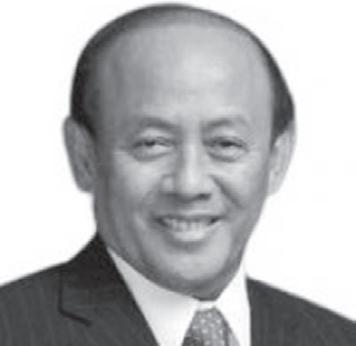
2 minute read
New Philippines Editorial
He warned that the days of agricultural smugglers and hoarders “are numbered,” and he would accept the resignation of rogue police officers, as he stressed that “we cannot tolerate corruption and incompetence in government.”
Addressing concerns about his pet project, the Maharlika Investment Fund, the president vowed transparency and accountability in its management.
Advertisement
Still, the president sounded a positive note in summing up his first year, describing the state of the nation as “sound and improving” and marcoeconomic fundamentals strong. He reiterated his commitment to “build better and more” critical infrastructure, to continue expanding affordable housing, social safety nets and Kadiwa outlets. He set a target of 100 percent household electrification by the end of his term.
Renewing the commitment that no Filipino will be left behind in terms of education, the president said the K-10 program is being “recalibrated” and the jobs-skills mismatch is being rectified. Science and technology and “a culture of innovation” are being given priority.
Babe’s Eye View
BaBe Romualdez
THERE is absolutely no doubt that the intense competition between the United States and China in the Indo-Pacific highly impacts countries in the region and even beyond. The Philippines’ strategic location – which “sits squarely at the heart of the Indo-Pacific region” as President Ferdinand Marcos Jr. described it – makes it a key stakeholder with a central role to play in the power dynamics in the region, with the U.S. and China engaged in a rivalry for economic, military, political and even technological supremacy.

Despite the escalating tension between the two giants with the rhetoric heating up once again, the U.S. and China “need each other,” analysts say, pointing to the continued economic cooperation between the rivals with bilateral trade reaching $690.6 billion in 2022, and the fact that their economies are complementary. While their battle for dominance continues, there are many indications that
Virtual Reality
T ony l opez
THERE are seven focus areas to remember about the presidency of Ferdinand “Bongbong” Romualdez Marcos Jr. 13 months after assuming the highest position in the land. These seven will define the Marcos Jr. presidency over the next five years.
One, BBM united the country.
For the first time in over half a century, or since the first Marcos presidency, a president has been elected with a majority vote of the people.
Except in holdout areas like Bicol and the western Visayas, BBM won by large majorities, garnering a whopping 31.6 million votes – the largest vote by any president and the largest margin ever by a winning president over his nearest opponent. BBM’s unity call has been resonant throughout the country.
Two, BBM reconnected the Philippines to the world. He has scaled down the pivot to China, strengthened ties to old ally the United States, dealt substantially with Europe, while maintaining close and solid relations with old partners Japan
He then enumerated 17 priority measures that he wants Congress to pass during its second regular session. These include the controversial reforms in the pension system of military and other uniformed personnel as well as new or higher taxes on singleuse plastics and digital services.
The president also wants to rationalize the mining fiscal regime and create a water resources management agency. He wants amendments in the road user’s tax, the Cooperative Code, the Fisheries Code and the Anti-Agricultural Smuggling Act. He wants a new government procurement law, Government Auditing Code and Philippine Immigration Act, and a law on “Tatak
Pinoy” and the blue economy. Other priorities are income classification of local government units as well as laws to ease tax payments and fight financial accounts scams.
That’s a long to-do list, for both the president and the legislature. At the start of the second regular session of the 19th Congress, everyone should hit the ground running. (Philstar.com)









